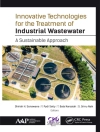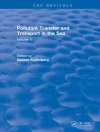This book presents up-to-date information on the status of water resources in India. It presents an assessment of the surface water and groundwater condition to help stakeholders take the necessary actions to control pollution and make the country’s water resources sustainable. The book addresses various topics, including forest-water interactions for governing water quality at catchment scales, water quality status, rainwater harvesting methods, acid-mine drainage, water pollution, management strategies, drinking water quality, and treatment of industrial wastewater.
Given its scope, the book offers a valuable tool for policy planners who wish to improve the current situation and move toward sustainable water resources in India.
Mục lục
Overview of Water Resources, Quality, and Management in India.- The Interlinking of Indian Rivers for Sustainable Use of Water Resources in India: An Overview.- An Overview: Water Resources Management Aspect in India.- Drought Characterization During Monsoon Months Based on Standardized Precipitation Index (SPI) in Nuapada District, Odisha, India.- Forest-Water Interactions at Catchment Scales for Pollution Management.- Assessment of Groundwater Quality In And Around Nemawar, Madhya Pradesh, India.- Hydrological Response of Factors Affecting Rainfall Water Discharge and Water Balance – A Case Study of Tons Watershed.- Water Quality Status of the Narmada River Across Its Basin: Predicting Water Quality Using Artificial Neural Network.- Rain Water Harvesting Methods in Rajasthan.- Groundwater Exploration Using Remote Sensing and GIS Techniques Coupled With Vertical Electrical Soundings From Hard Rock Terrain: A Case Study In Salem District, Southern India.- Management of Coal Fly Ash Leachates Generated From Disposal Sites Near Thermal Power Plants.- Assessment of Water Quality by Evaluating Water Quality Index Over Kolkota Using Statistical Approach – A Step Towards Water Pollution Management.- Assessment of Water Quality of Ramganga River in Moradabad Region.- Assessment of Surface Water Quality of Indian Rivers in Terms of Water Quality Index (WQI).- Groundwater Quality Assessment in the Semi-Arid Blocks of Rajasthan, India: .A Combined Approach of Fuzzy Aggregation Technique with GIS.- Assessment of Groundwater Quality Parameters for Drinking Purpose Using IDW, GIS and Statistical Analysis Methods: A Case Study of Basaltic Hard Rock Area in Mahesh River Basin, Akola and Buldhana Districts (MS), India.- Evaluation of Hydro-Meteorological Conditions and Water Resource Potential for a Coalfield Area of Damodar Valley, India.- Distribution and Statistical Source Identification of Heavy Metals and Radionuclides in Soil: A Case Study From a Proposed Uranium Mining Site, Jharkhand, India.- Conclusion and Recommendation.
Giới thiệu về tác giả
Prof. Shalini Yadav is Professor and Head of the Department of Civil Engineering, AISECT University, Bhopal, India. Her research interests include solid and hazardous waste management, construction management, environmental quality and water resources. She has executed a variety of research projects/consultancy in Environmental and Water Science and Technology and has got rich experience in Planning, formulating, organizing, executing and management
of R&D programs, seminars, and conferences at national and international levels. She has got to her credit guiding an appreciable number of M.Tech. and Ph.D. students. She has published more than 10 journal articles and 30 technical reports. Dr. Shalini has also visited and delivered invited lectures at different institutes/universities in India and abroad, such as Australia, South Korea, and Kenya. She is one of the editors of seven books namely Climate Change Impacts, Water Resources Management, Groundwater, Energy and Envrionment, Environemntal Pollution, Hydrologic and Modeling, Water Quality Management which are published recently by the Springer under the Water Science and Technology Library.
Professor Shalini Yadav graduated with a B.Sc. in Science from the Bhopal University. She earned her M.Sc. in Applied Chemistry with a specialization in Environmental Science from Bhopal University and M.Tech. in Civil Engineering with a specialization in Environmental Engineering from Malaviya National Institute of Technology, Jaipur, India in 2000. Then she pursued the degree of Ph.D. in Civil Engineering from Rajiv Gandhi Technical University, Bhopal, India in 2011. Also, she is a recipient of national fellowships and awards. She is a reviewer for many international journals. She has been recognized for one and half decades of leadership in research, teaching, and service to the Environmental Engineering Profession.
Prof. Abdelazim Negm is a professor of Water Resources at the Faculty of Engineering, Zagazig University, Egypt, since 2004. He got his Ph D in 1992 from Zagazig University (ZU) an his Msc from Ain shams University in the year 1990. He was the vice dean of the Faculty of Engineering of ZU from 12/2008 to 12/2011 and was the head of the Environmental Engineering Dept. at Egypt-Japan University of Science and Technology (E-JUST), Egypt 10/2013 to 9/2015. He participated in several international projects since 2006 until now. He published more than 300 papers in national and international journals and conferences. Some of his paper were a warded the prize of the best papers. He is the editor of several volumes at the Springer Handbook of Environmental Chemistry series (HEC series). Two volumes was published in May 2017 and one of them was within the top ten in water science for the year 2017. Also, ten volumes will be published during the year 2018. He is a reviewer for more than 22 scientific journals and associate editor of few journals. He is a member of the scientific committee of several international conferences.
Prof. Ramnarayan Yadava holds position of Vice Chancellor of the AISECT University, Hazaribag, Jharkhand, India His research interests include Solid Mechanics, Environmental Quality and Water Resources, Hydrologic Modeling, Environmental Sciences and R&D Planning and Management. Yadava has executed a variety of research/consultancy projects in the area of Water Resources Planning and Management, Environment, Remote Sensing, Mathematical Modeling, Technology Forecasting, etc.
He has got adequate experience in Establishing Institutes/Organizations, Planning, Formulating, Organizing, Executing and Management of R&D Programs, Organizing Seminars/Symposia/Conferences at National and International level. He has got to his credit guiding a number of M.Tech. and Ph.D. students in the area of Mathematical Sciences and Earth Sciences. Dr. Yadava has visited and deliveredinvited lectures at different Institutes/Universities in India as well as in abroad in the various countries such as USA, Canada, United Kingdom, Thailand, Germany, South Korea, Malaysia, Singapore, South Africa, Costa Rica, and Australia, etc.
He earned an M.Sc. degree in Mathematics with specialization in Special Functions and Relativity from Banaras Hindu University, India in 1970 and a Ph.D.degree in Mathematics with specialization in Solid Mechanics from Indian Institute of Technology, Bombay, India in 1975. Also, he is recipient of Raman Research Fellowship and other awards. Dr. Yadava has been recognized for three and half decades of leadership in research and service to the hydrologic and water resources profession. Dr. Yadava’s contribution to the state of the art has been significant in many different specialty areas, including water resources management, environmental sciences, irrigation science, soil and water conservation engineering, and mathematical modeling. He has published more than 90 journal articles; four text books; fourteen edited reference books.
Leadership in research and service to the hydrologic and water resources profession. Dr. Yadava’s contribution to the state of the art has been significant in many different specialty areas, including water resources management, environmental sciences, irrigation science, soil and water conservation engineering, and mathematical modeling. He has published more than 90 journal articles; four textbooks; seven edited reference books.












